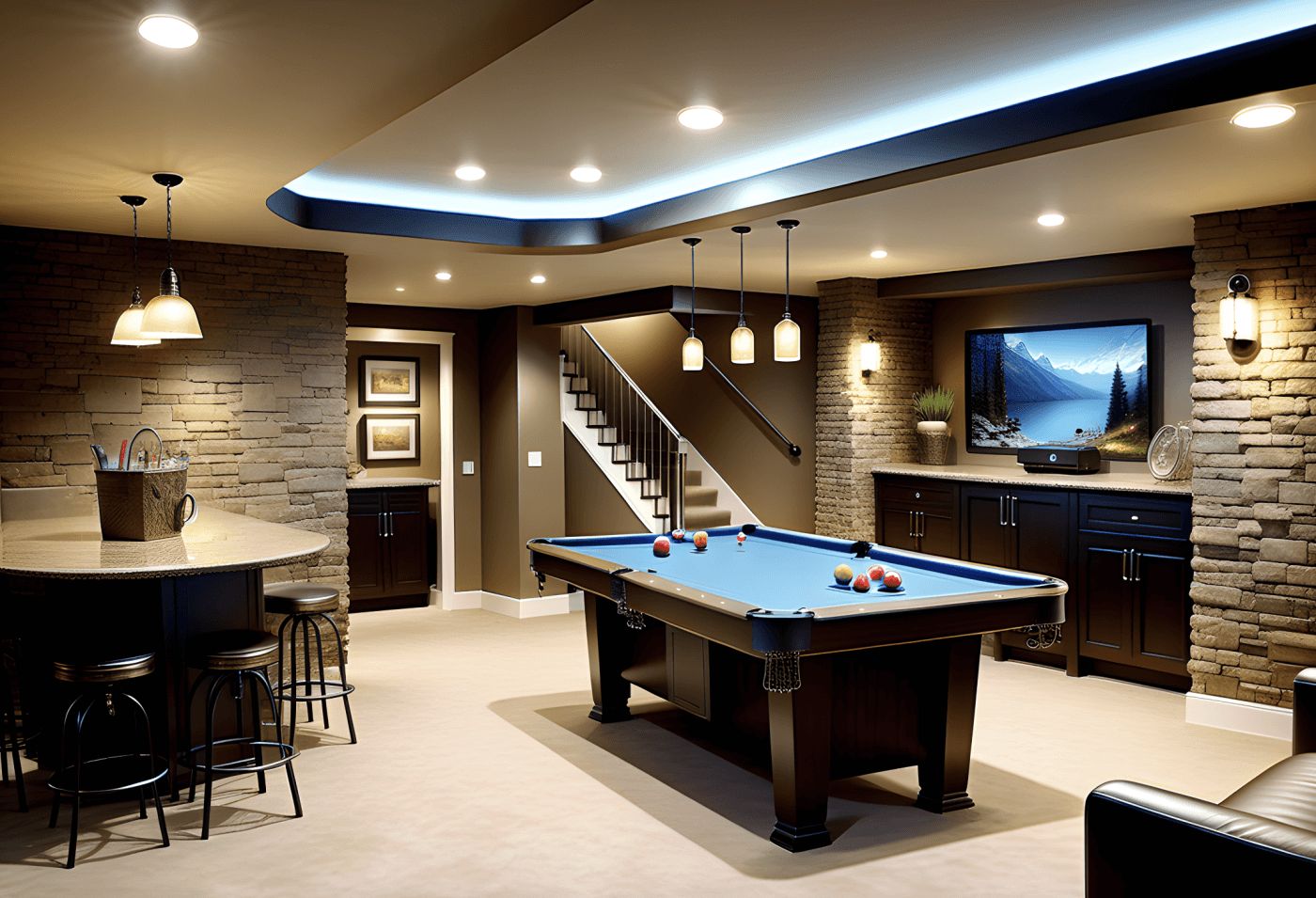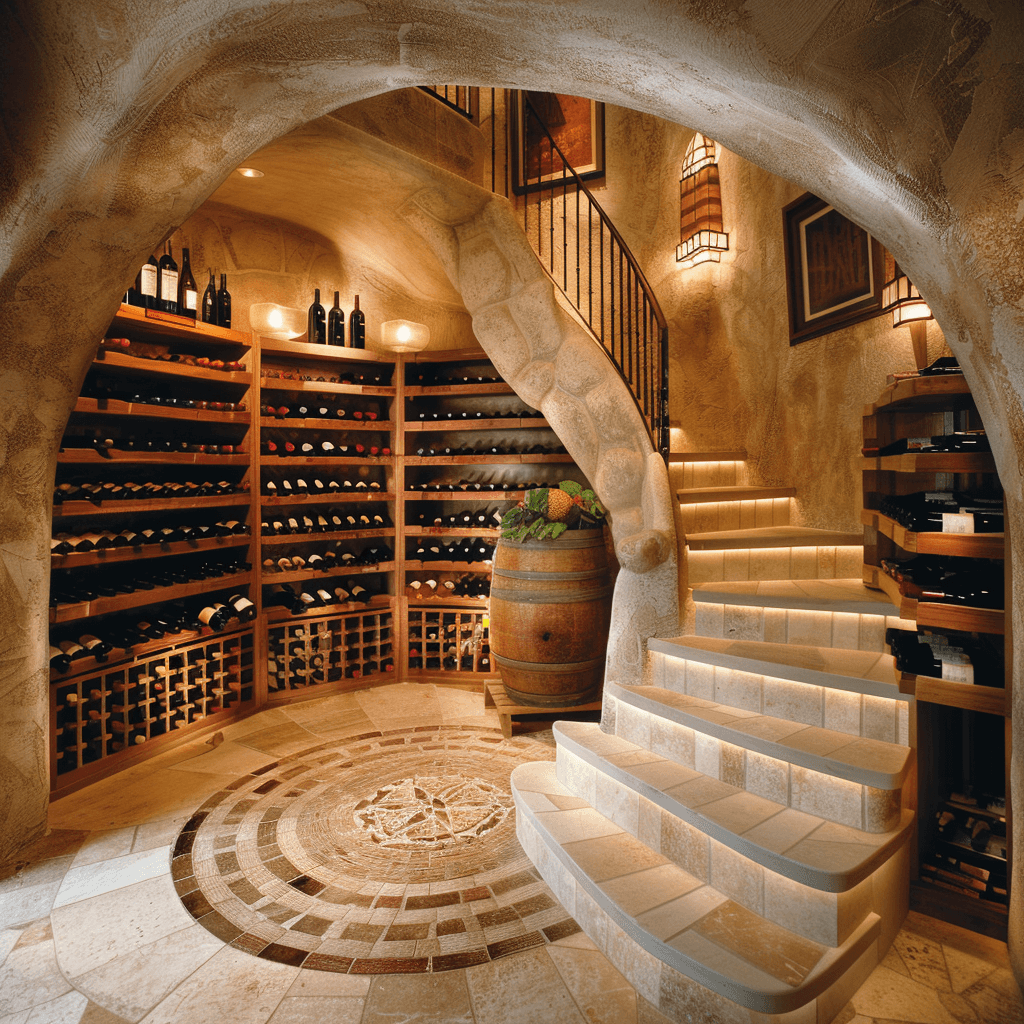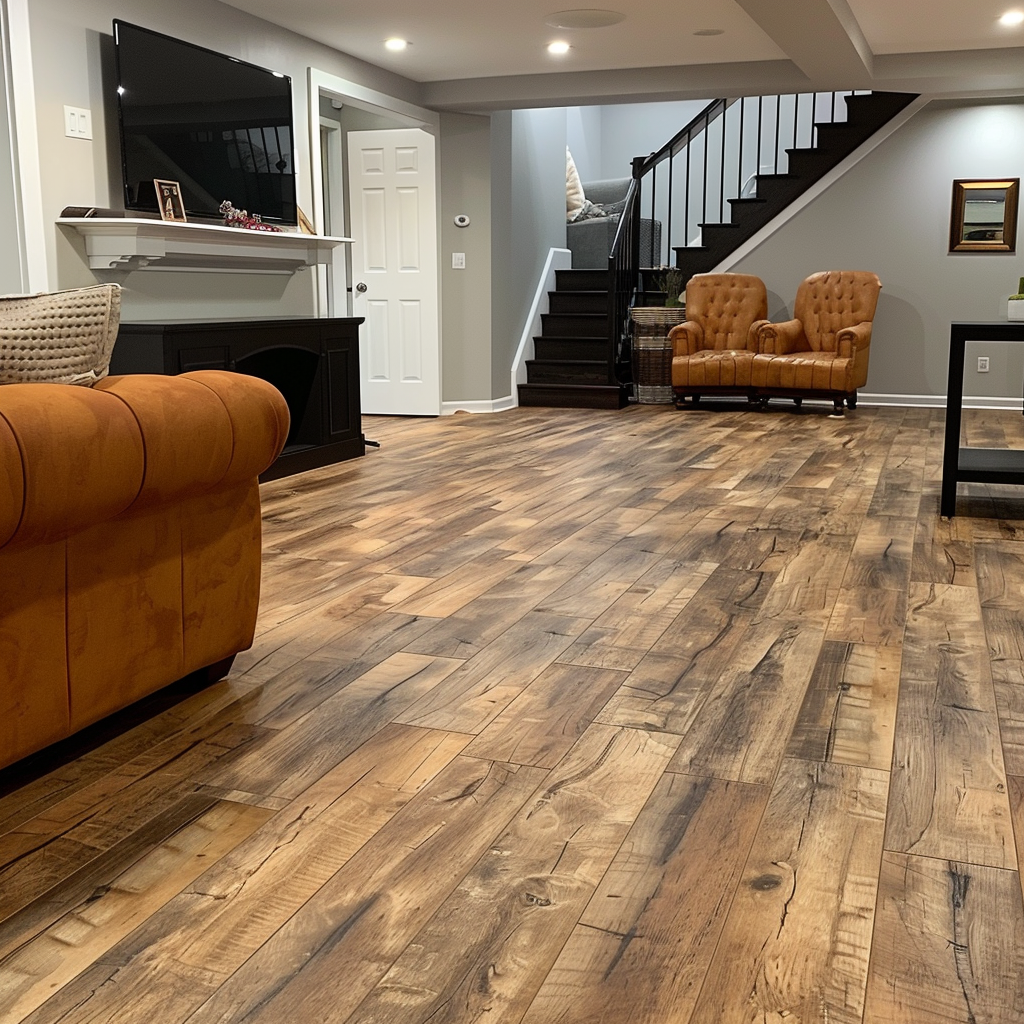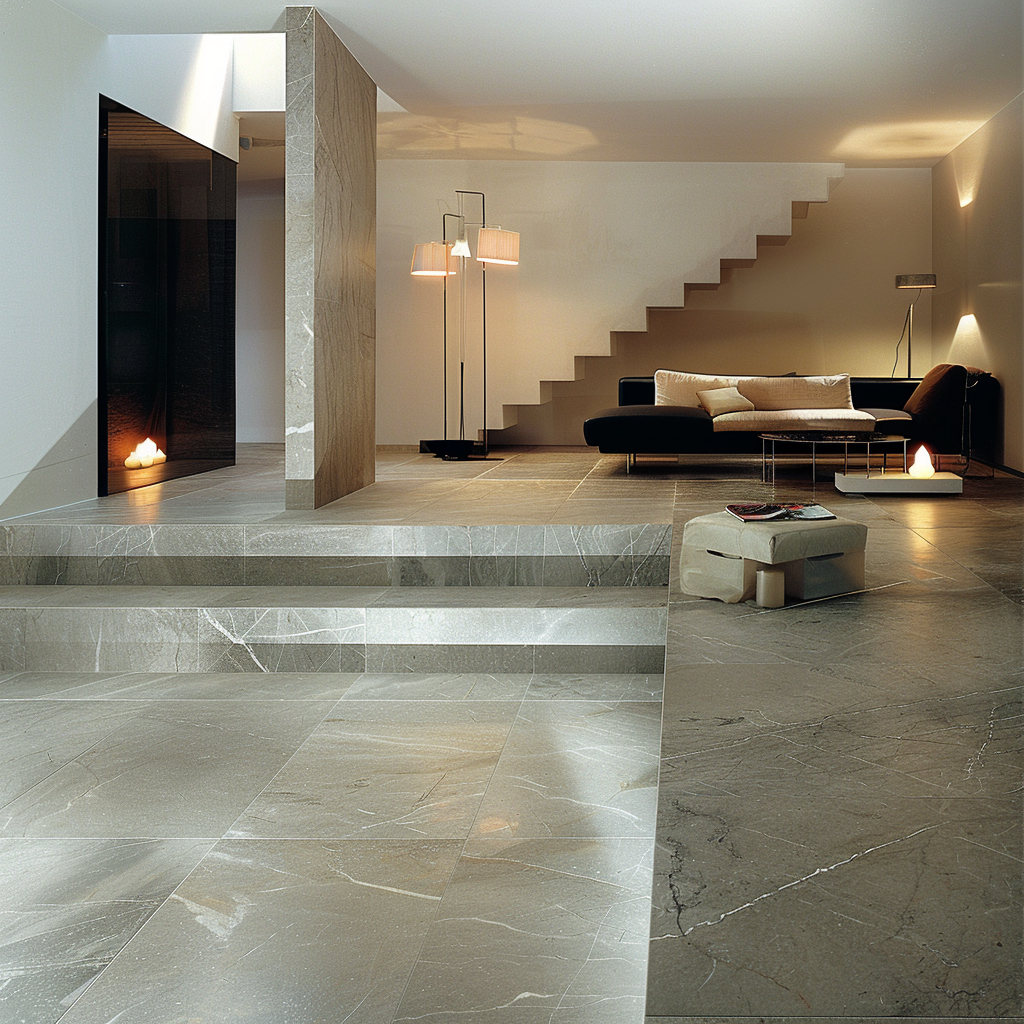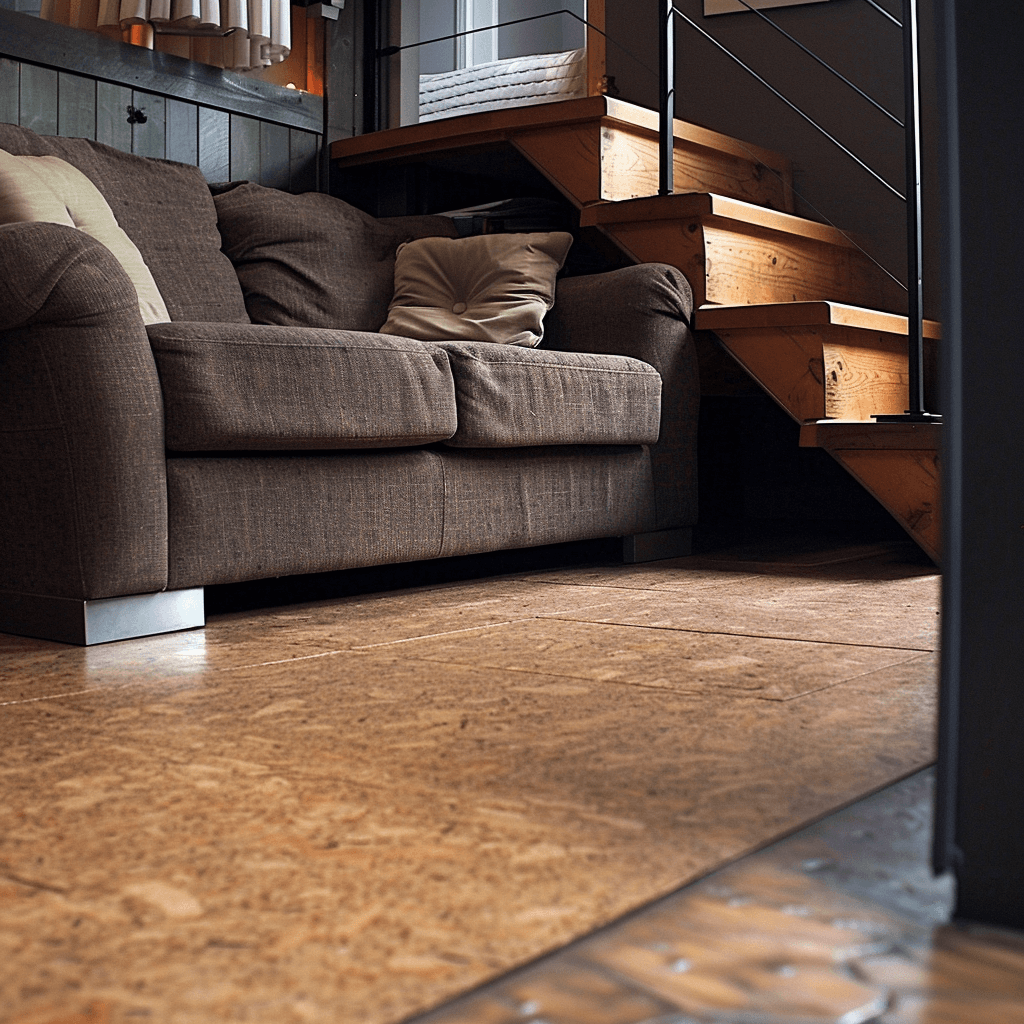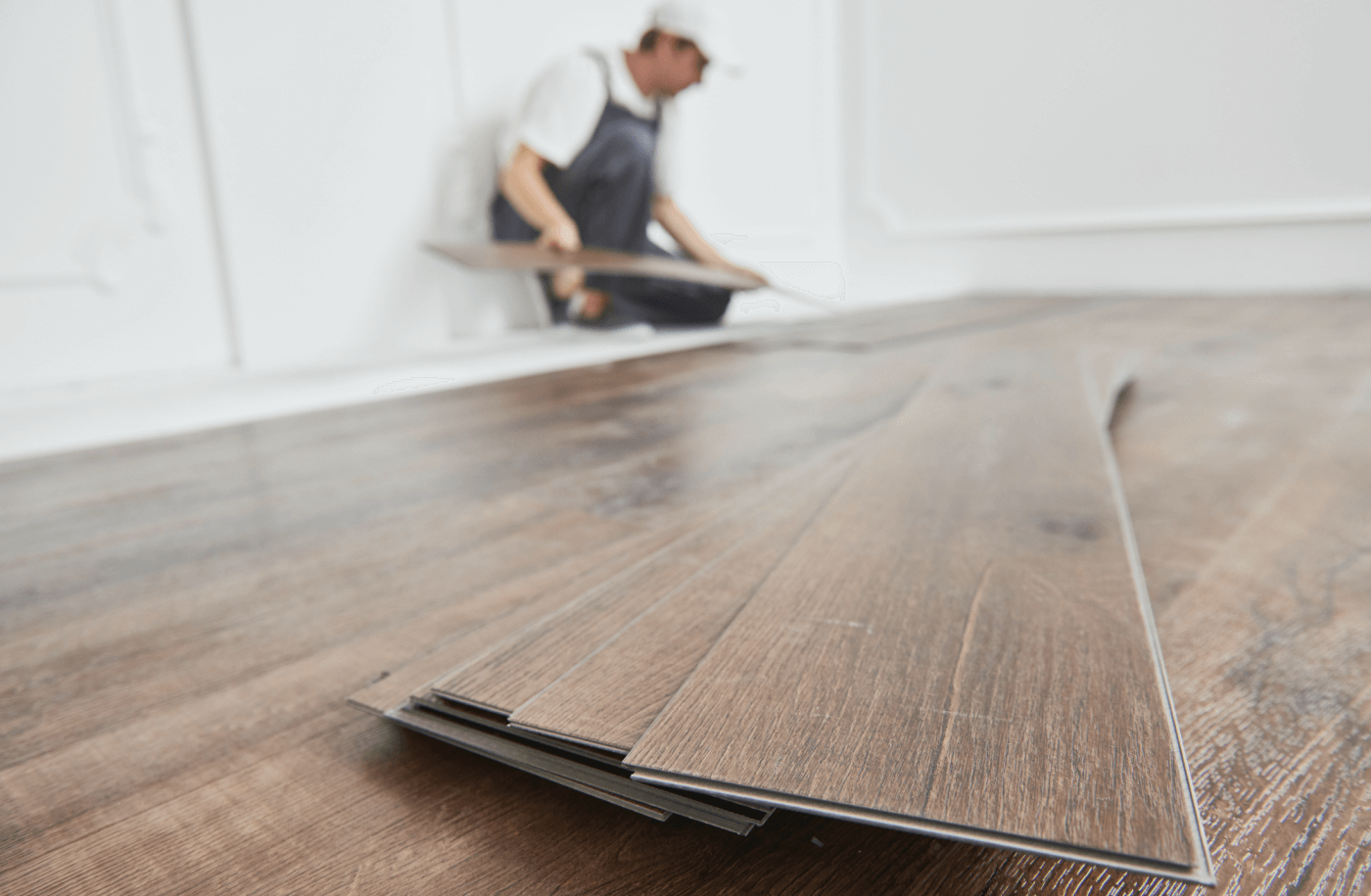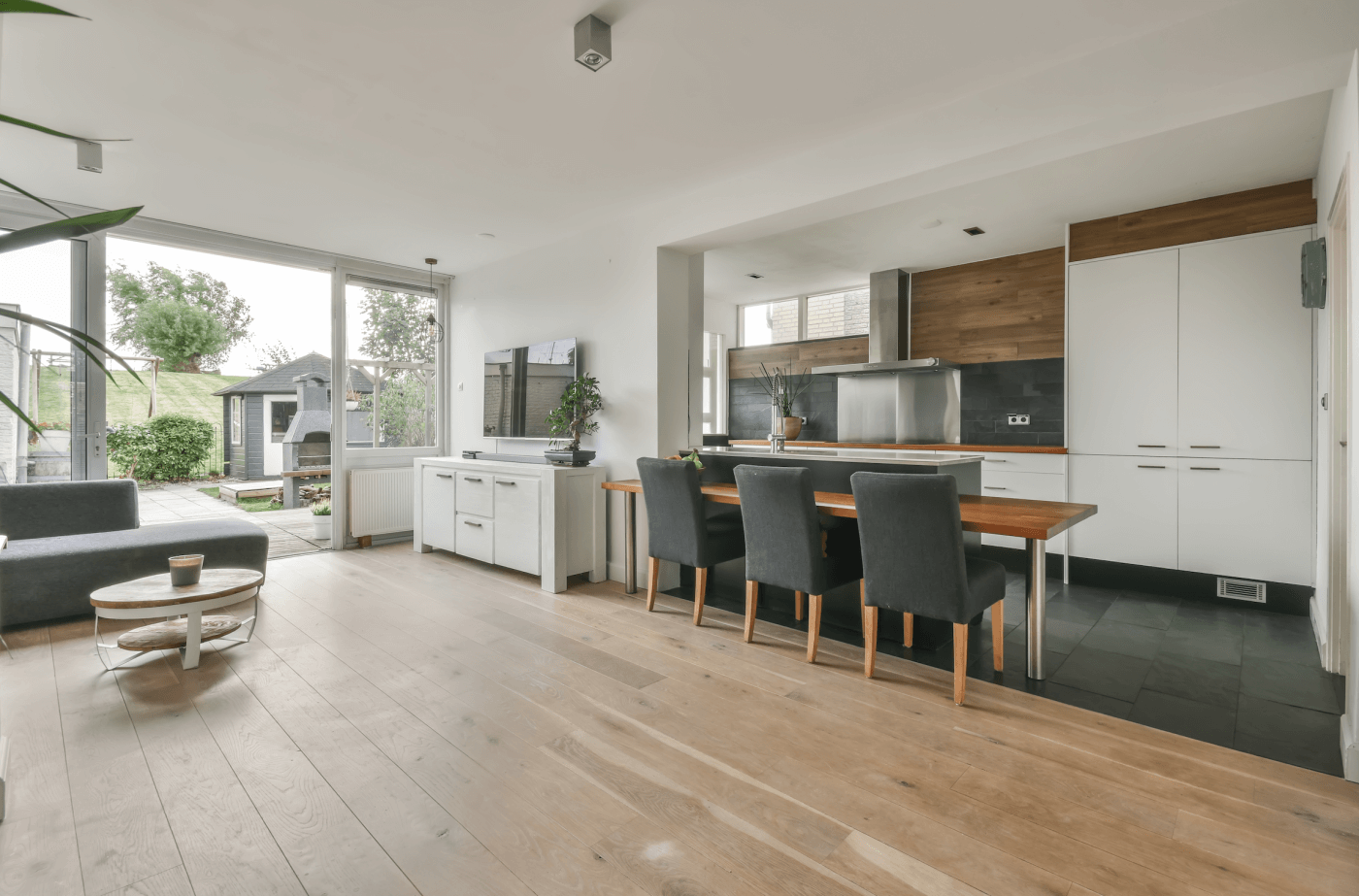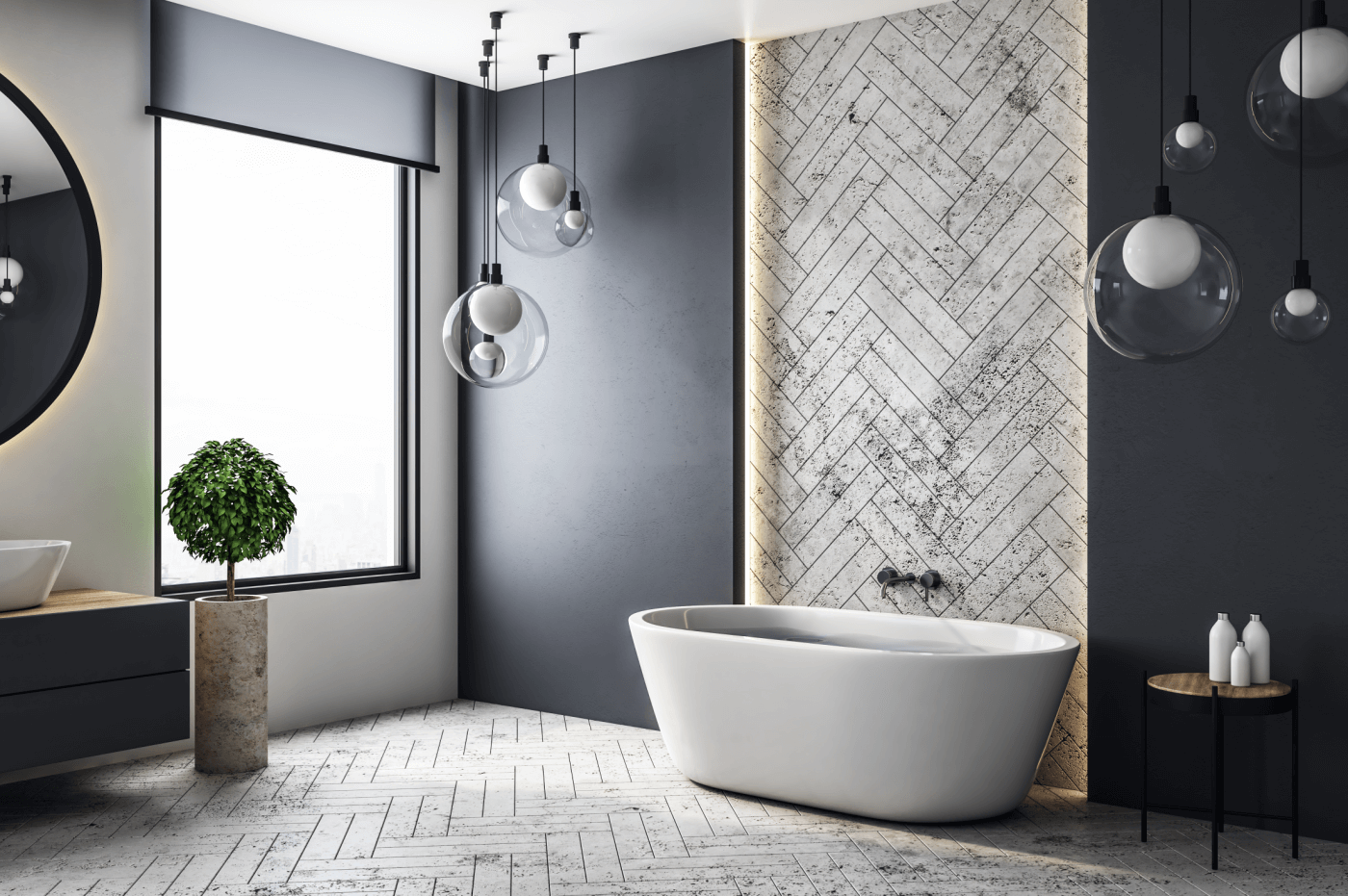If the purpose of your new basement is to be a wine cellar, the basement experts would doubtless be unanimous: The space in which such complex and fine processes of fermentation and wine maturation take place requires a basement floor that provides the best hygienic and atmospheric conditions, and that is concrete or ceramic tiles.
Whatever the purpose of your basement space - be it storage, playroom, gym, laundry room or living room - it can be beautifully transformed with the right floor covering. But each one must satisfy the first and basic criterion: waterproofness and durability in specific basement moisture conditions. Even in a pristine basement free of leaks and floods, there will always be moisture that inevitably emerges from the foundation. So we need good waterproof flooring options.
In order to properly choose the floor covering in the basement, you must have answers to important questions. What is the condition of the existing floor? Is it flat and suitable for installation? Is the area where you live dry or prone to flooding?
You need to know how you will use that space. If you have not yet decided which floor to put in your basement, we will consider possible solutions.
The Less Wood, the Better
People love wood. It is a wonderful natural material that provides beauty, quality and a smart investment in real estate market conditions. But that does not include investing in the basement. Despite the fact that wooden floors are among the favorite options for arranging the living spacе, due to its organic origin, wood is susceptible to the formation of molds and fungi.
In addition, your new basement floor, the installation of which you paid dearly for, will bend, deform and fall out of its bed due to the inevitable humidity and condensation of the substrate under it. So you will incur additional costs.
As we said, people love wood in their home, so in the last 15 years, the market for products that imitate the look of solid wood has exploded. Laminate flooring and engineered parquet look great, they have a layered structure, but precisely because of the percentage of wood they have in it, they will behave the same as solid wood floors. That's why it won't be a good solution for your basement space, except for some very high-quality engineered floors that have an additional surface treatment that makes them more waterproof.
For those of you who like the look of wood, the best type of material from this group of products that imitate it is vinyl. Although it has a bad reputation that it is aesthetically on par with linoleum, this is no longer the case. Luxury vinyl planks and boards are made from inorganic materials such as PVC, so by installing vinyl in your basement, you will get a very durable and waterproof floor.
Luxury vinyl planks in the basement
You can install it directly on the base, thus shortening and making it easier for you to install the floor. It is a floating floor so you can easily replace it. Designers have gone to great lengths to make today's luxury vinyl tiles and planks look much better than the old vinyls. Different colors, patterns and options are available. So you can have a durable waterproof floor in the color of walnut, espresso or canyon sun in your basement.
Concrete and ceramics
For a basement space where you will not need a higher degree of comfort such as a soft and warm floor, concrete and ceramic tiles are excellent!
Concrete is the right choice if you want a cheap and permanent solution in a space for a practical purpose. The laundry room, workshop or our wine cellar from the beginning of the story will have a strong waterproof floor that is well maintained. It does not require making a cement screed, so it reduces your costs.
Concrete in its raw state gives the space an industrial design look, and you can additionally paint it or cover it with an epoxy coating for an extra level of protection. Epoxy creates a seamless, durable, moisture-resistant surface, and the smooth finish is easy to clean and looks great.
Ceramic tiles are more expensive to install than concrete, but the purpose of such a floor is to last. Even in conditions of existing moisture, your ceramic floor will be resistant to water and mold, durable and hygienically impeccable. If you live where there is a risk of flooding, you can be worry-free, and in regions with high temperatures, tiles bring relief from the heat, so the basement can be used as a living room.
Since the tiles are glued directly to the foundation, this type of floor has the disadvantage that it can be quite cold at low temperatures. The choice of colors and patterns is such that it provides various decorating styles, so if ceramics suit you, you can have a basement that looks luxurious.
Modern style ceramic tiles in basement
Carpets in the basement
If you have a basement where there is no moisture and you want to use it as a living room or playroom, carpet is a good solution. It does not require a completely flat surface, and you can install the carpet tiles yourself and save a significant amount. They are easy to install over existing concrete, especially with a quality base.
Carpets are pleasant and comfortable, they will give warmth and softness to your floors, so you can more easily turn the basement into a living room, home gym or playroom. With it, you can improve the thermal insulation of the space that mostly has concrete underneath.
Carpets made of natural materials such as wool will not be a good choice for your basement floor because they will absorb all the water and become a base for mold and mildew.
Synthetic carpets are best for basement conditions because they do not retain moisture. Their fibers repel water and are more resistant to moisture damage. You can choose from several types of synthetic fibers, each with advantages and disadvantages. These are nylon, polyester, Trieksta and polypropylene.
Polypropylene or Olefin is a smart choice. It is inexpensive, can be installed directly over concrete, is developed to withstand water, and is easy to clean and maintain.
Rubber and cork
Cork can serve well to cover the basement floor. It is quite resistant to humidity, creates good heat and sound insulation and will provide you with a certain comfort. Cork is obtained from the bark of floating oak, so with it you get an environmentally very sustainable and acceptable material that comes in different colors and patterns. If you maintain it regularly, it will be relatively durable.
Rubber cannot meet aesthetic requirements like cork and is not durable. If you opt for rubber in your basement playroom or gym, you'll have an inexpensive, easy-to-install floor. Although it is not a permanent solution, the replacement is quick and simple.
Cork cover for the basement floor
Tips and Tricks
Basement flooring prices can vary depending on the material you choose and whether you install it yourself. Here's a general idea:
Vinyl tiles and planks: $2-$10 per square foot for materials, plus $2-$6 per square foot for professional installation.
Luxury Vinyl Tile: $2-$9 per square foot for materials, or $7-$20 per square foot installed.
Epoxy paint: A budget-friendly option at around $1-$3 per square foot.
Take a look at the floor options for the basement offered by our most trusted brands and find the one that excels at meeting your needs: Proximity Mills, Newton, Doma and Liberty Home.
Conclusion
The correct choice of floor covering in the basement area will ensure that the floor is resistant to moisture, that it lasts and that it looks beautiful. In the text, we have explored different flooring options and each has specific ways of application. The choice depends on the balance of function, aesthetic requirements and budget.






